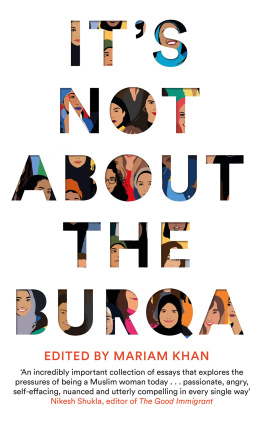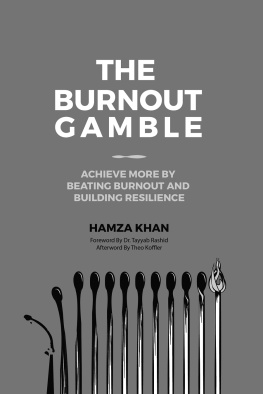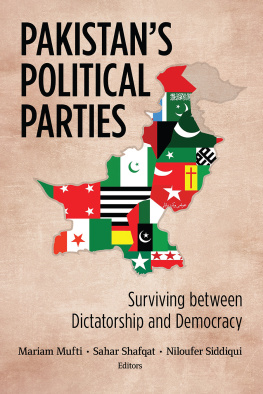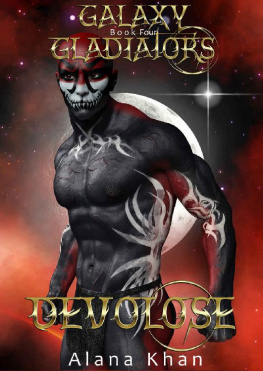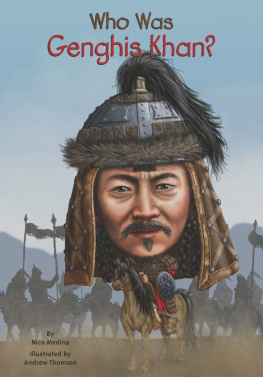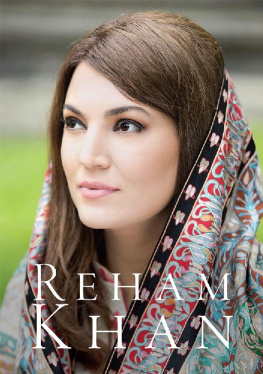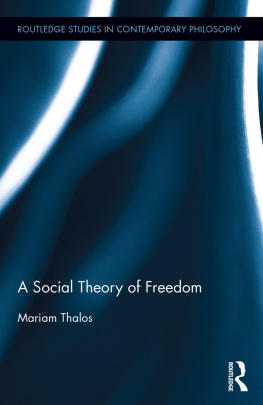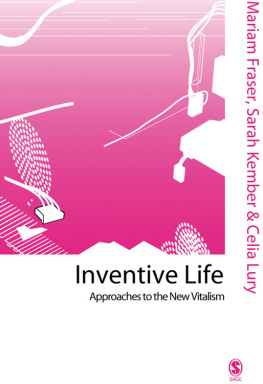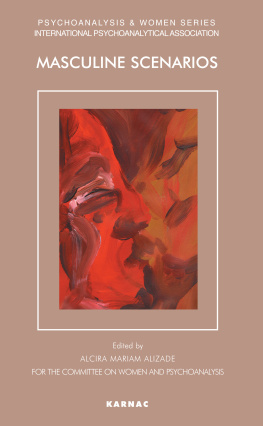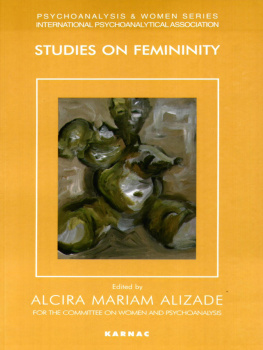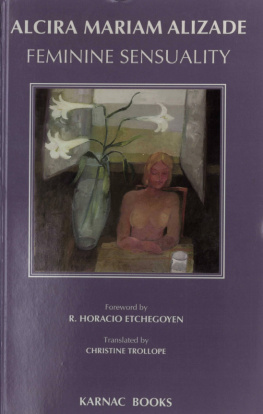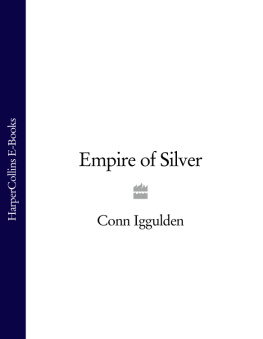Mariam Khan - Its Not About the Burqa
Here you can read online Mariam Khan - Its Not About the Burqa full text of the book (entire story) in english for free. Download pdf and epub, get meaning, cover and reviews about this ebook. publisher: Pan Macmillan, genre: Romance novel. Description of the work, (preface) as well as reviews are available. Best literature library LitArk.com created for fans of good reading and offers a wide selection of genres:
Romance novel
Science fiction
Adventure
Detective
Science
History
Home and family
Prose
Art
Politics
Computer
Non-fiction
Religion
Business
Children
Humor
Choose a favorite category and find really read worthwhile books. Enjoy immersion in the world of imagination, feel the emotions of the characters or learn something new for yourself, make an fascinating discovery.
- Book:Its Not About the Burqa
- Author:
- Publisher:Pan Macmillan
- Genre:
- Rating:5 / 5
- Favourites:Add to favourites
- Your mark:
- 100
- 1
- 2
- 3
- 4
- 5
Its Not About the Burqa: summary, description and annotation
We offer to read an annotation, description, summary or preface (depends on what the author of the book "Its Not About the Burqa" wrote himself). If you haven't found the necessary information about the book — write in the comments, we will try to find it.
Its Not About the Burqa — read online for free the complete book (whole text) full work
Below is the text of the book, divided by pages. System saving the place of the last page read, allows you to conveniently read the book "Its Not About the Burqa" online for free, without having to search again every time where you left off. Put a bookmark, and you can go to the page where you finished reading at any time.
Font size:
Interval:
Bookmark:


To Amelia and Elah.
robe-like dress or cloak
all praise and thanks be to Allah
outer garment covering the body and face, with a mesh grille or window across the eyes
sandals, usually made of leather
the people and culture of South Asia and their diaspora
prayer
a piece of cloth wrapped around the legs and tied at the waist, resembling baggy trousers
long shawl-like scarf draped across the head and shoulders
al-Fitr religious holiday marking the end of Ramadan
Eid al-Adha religious holiday honouring Ibrahims readiness to sacrifice his son
acts of obligation
gunah fault, crime, sin, guilt
sinner
records of events in the life of the Prophet Mohammed
permissible under Islamic law
form of hair removal known as sugaring
forbidden by Islamic law
meaning partition or curtain, colloquially used to refer to a scarf that covers the head
person who wears the hijab
mosque leader
God willing
essential oil derived from botanicals
long, loose outer garment that covers the entire body
long tunic
loose collarless shirt falling either above or below the knee
full ankle-length skirt worn at formal or ceremonial occasions
God has willed it
mosque
Islamic cleric; in Pakistani culture often used in a derogatory way to describe religious leaders who manipulate the masses
a school that teaches Islamic theology
Muslim woman
self, soul, consciousness, ego
marriage contract
outer garment covering the head and face, but not the eyes
judge who administers Islamic law
the central religious text of Islam
the Islamic holy month of fasting
loose trousers
general term for a traditional outfit worn by men and women in various styles, comprising the salwar and the kameez
Islamic law, derived principally from the Quran and the hadith
mens formal coat-like garment
social and legal practice, custom and tradition following the example of the Prophet Mohammed
chapter of the Quran, each divided into verses
community (the idea that all Muslims are of one body)
a mandatory charitable contribution; the third pillar of Islam
In January 2016, the Daily Telegraph reported on a private conversation in which David Cameron said he considered Muslim women to be traditionally submissive. The response to his comments was anything but. Photographs of Muslim women holding up placards explaining exactly how they were not #TraditionallySubmissive spread across the internet. These women were everything from war survivor to PhD student, from mother to doctor. As I watched it all unfold online, I realized that I was always hearing things about Muslim women. Things about who we were and who we were supposed to be and how we were supposed to act.
When was the last time you heard a Muslim woman speak for herself without a filter? Or outside the white gaze? On her own terms? Or outside the narrative built around us by the media and governments? If Muslim women are to progress in society, if Muslim women are to be treated with respect, then its so important that we challenge the narrative built around us. Its pretty obvious, isnt it? We should be the authors of our narrative and identity; we should be the ones speaking about us.
Its Not About the Burqa brings together Muslim womens voices. It does not represent the experiences of every Muslim woman or claim to cover every single issue faced by Muslim women. Its not possible to create that book. But this book is a start, a movement: we Muslim women are reclaiming and rewriting our identity. Here are essays about the hijab and wavering faith, about love and divorce, about queer identity, about sex, about the twin threats of a disapproving community and a racist country, and about how Islam and feminism go hand in hand. Every essay in this book is unfinished, because each one is the beginning of a very necessary conversation.
By using the word on the front cover of this collection of essays, its frustrating that even now Im having to engage with a narrative that Muslim women never created. Burqa is a word that has been politicized, and has become synonymous with Muslim female identity: its just another element in the narrative written around us by others. By engaging with this narrative I hope to dismantle it from within. Muslim women are more than burqas, more than hijabs, and more than society has allowed us to be until now.
We are not asking for permission any more. We are taking up space. Weve listened to a lot of people talking about who Muslim women are without actually hearing Muslim women. So now, we are speaking. And now, its your turn to listen.
Mariam Khan
A young Muslim woman wrote to me recently to tell me she had reviewed my book, Headscarves and Hymens: Why the Middle East Needs a Sexual Revolution, which I published in 2015. In the book, I take a look at womens rights in the Middle East and North Africa in the wake of the Arab Spring revolutions in the region. Like much of my work, it critiques misogyny in my culture and faith background, and calls for social and sexual revolutions alongside the political revolutions of the Arab Spring in order to liberate women from all forms of oppression.
I clicked on the link the young woman sent and read that for a long time she had been scared to read my writing because she had heard that Mona Eltahawy is too loud, swears too much and goes too far.
Too loud, swears too much and goes too far.
What a great book title that would make, I thought!
I understood that those descriptors had all been meant as insults. I knew that they were meant as warning signs intended to stop other readers from coming closer. And I knew that for many people they worked. But I took them as compliments.
Too loud, swears too much and goes too far sounded just about right. I was proud!
Women are supposed to be less than, not too much. Women are meant to be quiet, modest, humble, polite, nice, well behaved, aware of the red lines. They are supposed to tread softly and within their limits.
Patriarchy demands that of all women, but the more women fall within intersections of oppression, the more they are expected to live by those demands, and Muslim women are especially vulnerable to what I call a trifecta of oppressions: misogyny (faced by all women), racism (faced by women of colour) and Islamophobia (faced by Muslims).
Muslim women are caught between a rock an Islamophobic and racist right wing that is eager to demonize Muslim men, and to that end misuses our words and the ways we resist misogyny within our Muslim communities and a hard place: our Muslim communities that are eager to defend Muslim men, and to that end try to silence us and shut down the ways we resist misogyny. Both the rock and the hard place are more concerned with each other than they are with Muslim women. They speak over our heads literally and figuratively. Our bodies what parts of them are covered or uncovered, for example are proxy battlefields in their endless arguments. It matters little what we women think because ultimately, both the rock and the hard place agree on and are enabled by patriarchy.
Font size:
Interval:
Bookmark:
Similar books «Its Not About the Burqa»
Look at similar books to Its Not About the Burqa. We have selected literature similar in name and meaning in the hope of providing readers with more options to find new, interesting, not yet read works.
Discussion, reviews of the book Its Not About the Burqa and just readers' own opinions. Leave your comments, write what you think about the work, its meaning or the main characters. Specify what exactly you liked and what you didn't like, and why you think so.

